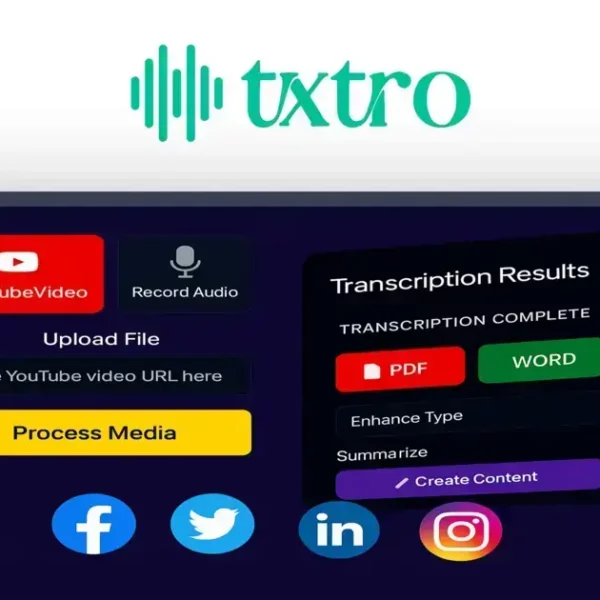SaaS products offer incredible value, especially when paired with a lifetime deal. But how do you choose wisely? Let’s explore essential checks before diving in!
Do Your Homework on the Developer and the Company
Before diving into a lifetime deal for a SaaS product, it’s vital to do your homework on the developer and the company behind the software. Start by checking out the company’s website. Look for information about their mission, values, and history. A trustworthy company will usually be transparent about who they are and what they offer.
Research the Developer
Investigate the developer behind the product. Check their reputation online. Look for reviews and testimonials from other users. Positive feedback can indicate a reliable developer. However, if you find many complaints or negative reviews, it’s a big red flag.
Check for Longevity
It’s important to know how long the company has been in business. Companies that have been around for several years are often more stable. They are likely to offer better support and updates. A startup, while exciting, might not have the same resources or experience.
Follow Social Media and Community Presence
Check their social media profiles. Active engagement with customers is a good sign. You can also find forums or communities talking about the product. Join discussions to see what current users think. This can give you valuable insights.
Review Their Financial Health
Understanding a company’s financial situation might seem complex, but it’s important. Look for funding rounds, investor backing, and any recent news articles about them. Strong financial backing often means a better chance of the company sticking around.
Check what Features Have Been Rolled Out Recently

When considering a SaaS lifetime deal, it’s essential to check the latest features rolled out by the software. Knowing what’s new can help you decide if the product is worth your time and money. Companies often add features based on user feedback, so it’s a good sign if they’re actively improving their product.
Look for Recent Updates
Visit the company’s website or blog to find recent updates. Many SaaS companies keep a log of new features on their sites. This log will show how often they update their software. An active development team usually means a better, more reliable product.
Consider User Feedback
User feedback can tell you a lot about the new features. Check forums or customer reviews to see how users feel about recent updates. Are they satisfied with the new features? This info can help you gauge if the product meets its promises.
Test New Features if Possible
If the company offers a trial period, take advantage of it. Explore the new features for yourself. Are they user-friendly? Do they solve problems effectively? This is your chance to see if the updates are genuinely beneficial.
Assess Feature Roadmaps
Feature roadmaps give insight into future updates. Does the company plan to keep improving the software? A transparent roadmap can show their commitment to enhancing user experience. It’s great to support a company that values its customers’ needs.
Look at Their Roadmap
Looking at a company’s roadmap is a smart step when considering a lifetime deal for SaaS. A roadmap outlines the future plans for software updates and features. It gives you a clear picture of where the product is heading and shows if the company is committed to improvement.
What Is a Roadmap?
A roadmap is like a guide map for a software product. It shows the features and enhancements that the company plans to release in the future. This can include new tools, upgrades, and fixes. Knowing what’s coming can help you manage your expectations.
Why Roadmaps Matter
Checking a roadmap can reveal how active and engaged a company is. If they often update their roadmap, it shows dedication to user needs. A lack of updates might mean the company is stagnant. This can be a warning sign.
Review the Timeline
Take note of the timeline presented in the roadmap. Are the release dates realistic? Look for milestones and deadlines. A clear timeline indicates a well-organized plan. It shows they have thought through their development process.
Engagement with Users
Many companies use feedback from their users to shape their roadmap. This means they listen to what customers want and need. See if they openly discuss their roadmap with users. Companies that value feedback typically create better products.
Chat with Their Support

Chatting with customer support is a great way to learn more about a SaaS product. It gives you a chance to directly ask questions and clarify doubts. Good companies will have responsive support teams ready to help you out.
Why Contact Support?
Reaching out to support shows how the company values its customers. A quick response can indicate that they care about user experience. If you get prompt help, that’s a positive sign. It means they are likely to be there for you in the future.
What to Ask
Prepare questions before you chat. You might inquire about features, updates, or pricing. Ask about how they handle customer feedback. This can give you insight into how they improve their product.
Test Their Response Time
Timing is important. Find out how long it takes for them to reply. If they respond fast, it shows they value their users. A slow response might raise concerns about their support quality.
Gauge Their Knowledge
During the chat, assess the support team’s knowledge. Do they provide accurate information? Are they friendly and helpful? This can reveal how professional they are and how much they really understand their product.
Decide Whether the Product Fills a Current or Upcoming Need
When considering a SaaS product, it’s essential to decide if it meets your current or upcoming needs. This helps ensure the investment is worthwhile. Ask yourself how the product fits into your daily tasks or future goals.
Understanding Your Needs
Start by identifying what problems you face right now. Is there a task that takes too long? Does your team need better collaboration tools? A product should solve a specific issue for you.
Consider Future Growth
Think about where your business is heading. Will your needs change in the next few months? Choose a product that can grow with you. It should adapt to new challenges as your business expands.
Compare Features
Look at the features offered by the product. Do they match your needs? Check if they can help you improve processes. If a feature seems unnecessary now, will it be helpful later?
Get Feedback from Your Team
Involve your team in the decision-making process. Ask for their opinions on the product. Their input can provide valuable insights. They may have specific needs you didn’t consider.




